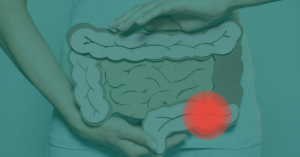The Gut-Skin Axis: Gut imbalance and the effect on skin
Poor skin conditions can be directly related to the state of your gut garden. An upset microbiome will, inevitably, lead to more external issues like acne, rosacea and psoriasis. Symptoms of these conditions can be alleviated by implementing small dietary and lifestyle changes. This can include something as simple as a probiotic supplement which has the potential to have profound health effects.







